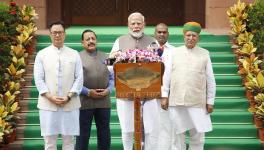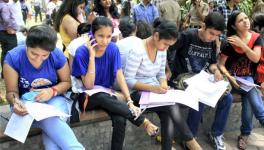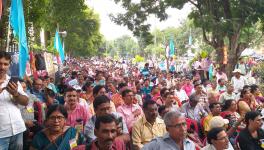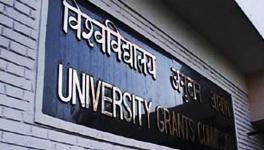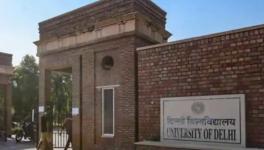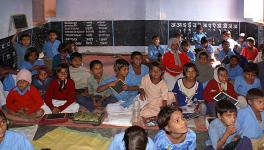New Education Policy: RTE Pruned, Research Market Based
Image for representational use only.Image Courtesy : The Indian Express
The draft of New Education Policy, framed by a 9-member committee led by former Indian Space Research Organisation (ISRO) chief K Kasturirangan, was released soon after the new government was sworn in on 30th May, 2019. The policy, which was first promised in the campaign of the Bharatiya Janata Party (BJP) in the run up to the 2014 elections, underwent a long journey before it was finally submitted in December last year. The country has so far witnessed three education policies; the first policy came into force in 1968 which was based on the report and recommendations of Kothari Commission followed by National Education Policy enacted in 1986 and adopted after some changes in 1992.
The announcement of the committee for framing new education policy, almost after two decades, was received with much fanfare but the provisions of the policy started triggering controversies soon after it was made available in the public domain. The first controversy erupted after political parties in Tamil Nadu protested against the imposition of Hindi as a compulsory language. But a close observation of the policy document suggests that it has taken a completely different course than intended.
Amidst the fears of centralisation, educationalists and rights activists point out that the policy may undo major achievements of legislations like Right to Education as it seeks its review if it is accepted in its current form. For example, policy on page 195 states," schools such as gurukulas, madrasas, pathshalas, home schools, alternative schools, etc. will be allowed and enabled to deliver a quality education and participate in the education system (e.g., in BOAs)."
But educationalist Anita Rampal argues that the measures may rob the legislation of its essence and pave way for justifying low-cost private schools, philanthropic-public partnership schools, religious schools, and the largest network of Rashtriya Swayamsevak Sangh (RSS) schools which include Ekal Vidyalayas run in predominantly tribal regions. Talking to NewsClick, she said, “the concerning part is related with the provisions of Right to Education which mandates basic compliance of several standards like teacher student ratio, teacher qualification and safety. The draft of New Education Policy calls for removing of these provisions.”
She further argues that programs like Remedial Instructional Aides Programme (RIAP) only undermine the quality of education and children from poor backgrounds, in all likelihood, would be the worst hit by such programs. Consider this- the programme is envisioned as a temporary 10-year project to draw instructors, (especially women from local communities) to formally help students who have fallen behind and bring them back into the fold. Whereas, instructors would be true local heroes - bringing back students who might otherwise drop out, not attend, or never catch up. The instructors would be drawn from among those in the local communities who have graduated from Grade 12 (or the highest grade in school that was available in their region at their time) and who have been among the better performers in their schools.
The programme seems to be in line with the previous government's policies under which untrained people were hired to teach students and later disqualified by various courts. But academicians like Abha Habib, former Executive Council member of the University of Delhi (DU) point out that it is the autonomy of institutions and funding for research which will be hit by the recommendations of the committee. The comments come in the wake of formation of Rashtriya Shiksha Aayog and National Research Foundation. The recommendation suggests that the commission will be headed by the Prime Minister of India and its members include Niti Aayog’s Vice Chairman, Union Human Rights Development (HRD) Minister and other officers from higher ranks of the government .
She said, "for institutions like these to function and frame policies, autonomy is a must. The members argue and deliberate to reach at a conclusion. How can you ensure autonomy when the body itself is headed by the topmost official of the country. As far as Research Foundation is concerned, the funding should be done by the government, not the market. Experience shows that the market is only interested in research that brings profit to it. What about fundamental sciences? Market may be interested in nanotechnology but it may not be interested in cosmology. Who will invest in these fields if not the government?"
Also Read: Nothing 'New' in New Education Policy, Peddles Corporatisation and Centralisation in Education
Get the latest reports & analysis with people's perspective on Protests, movements & deep analytical videos, discussions of the current affairs in your Telegram app. Subscribe to NewsClick's Telegram channel & get Real-Time updates on stories, as they get published on our website.









